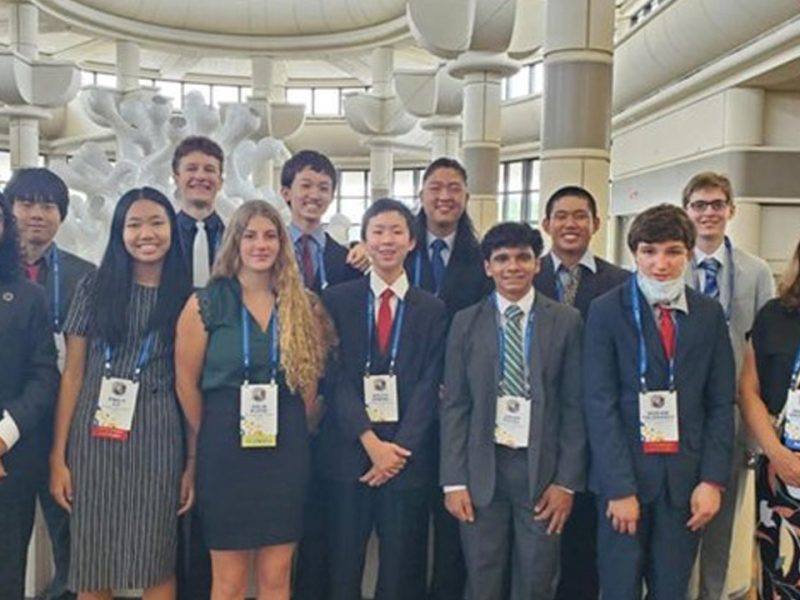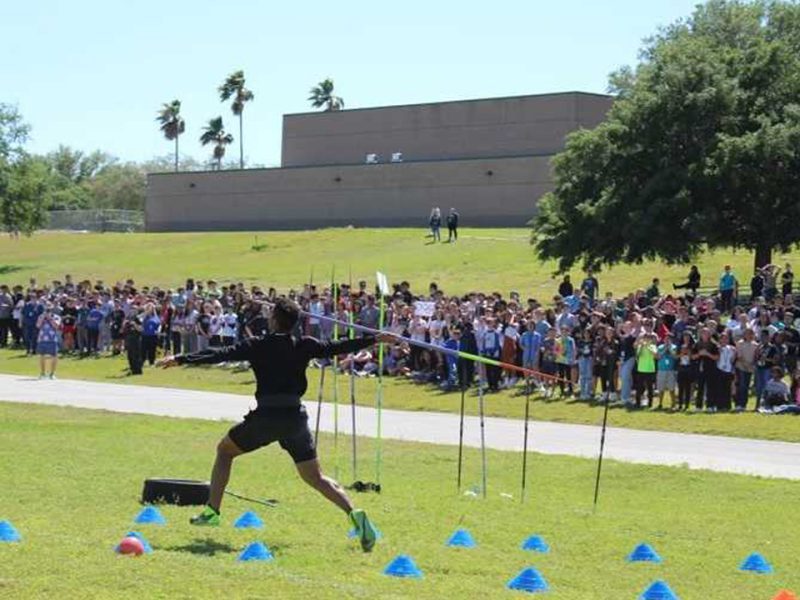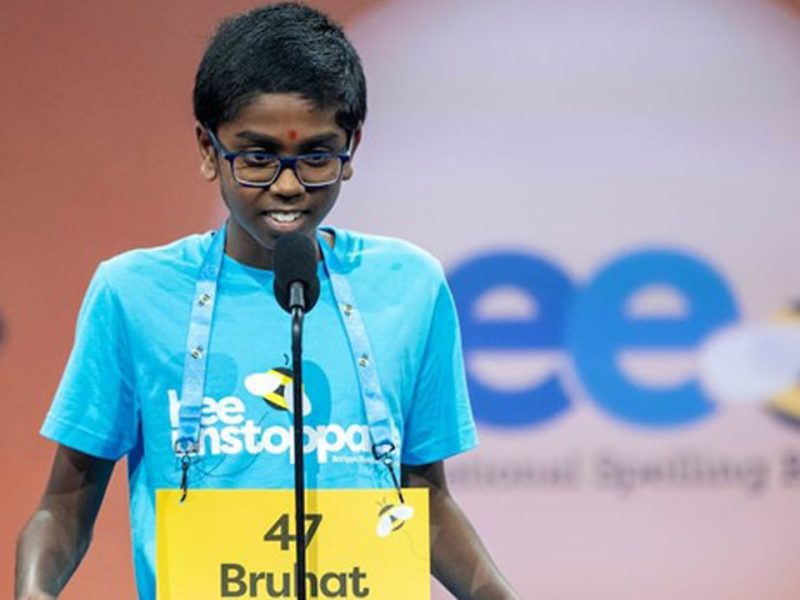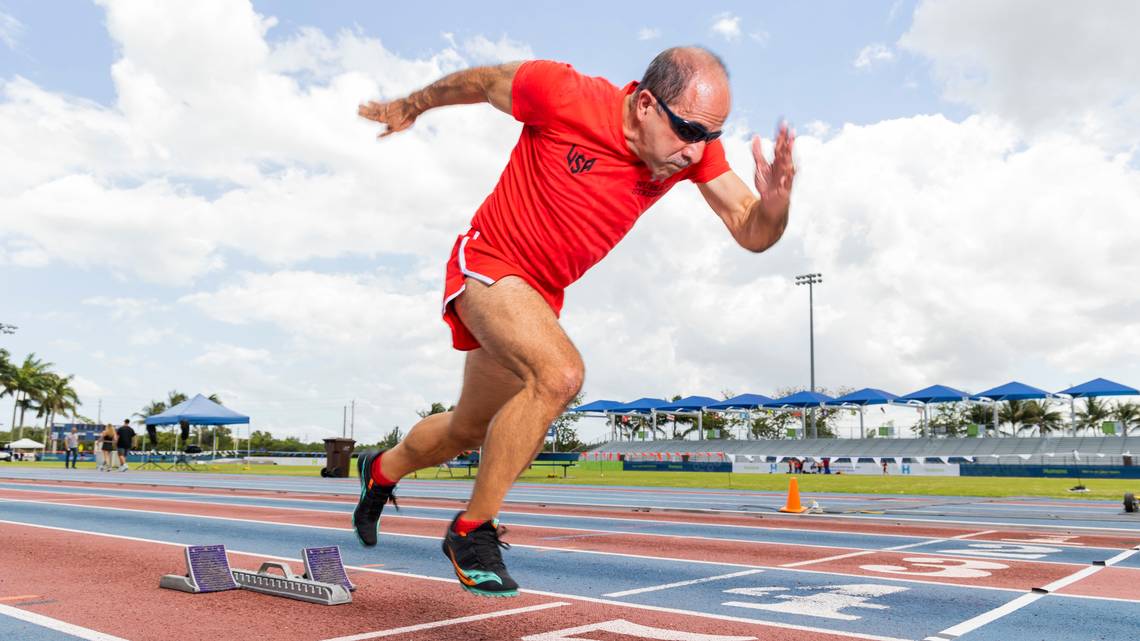
‘A second chance’: After facing death, MDCPS teacher from Cuba joins ‘Senior Olympics’
Miami Herald | By Jimena Tavel | May 12, 2022
The night he was diagnosed with stage 2 colon cancer at the hospital, Oscar Fabra couldn’t sleep: His mind was racing as he reflected on how he had spent his life and whether he even had a future.
“I started thinking, ‘If God saves my life, I’ll do something different,’” said Fabra, now 59, remembering the torment he endured nearly 15 years ago.
Fabra survived the potentially deadly disease thanks to surgery and six months of chemotherapy. And soon after his ordeal, he found that “something different” — a passion to persuade others, especially people 50 years and older, to embrace healthier lifestyles.
This week, Fabra will lead by example as he runs in the 2022 National Senior Games, in which athletes 50 and older compete in 21 sports. This is an Olympics-style event; in fact, it’s often referred to as the “Senior Olympics.”
Categories include individual sports such as bowling, and team sports like soccer. Two more sports were added to this year’s competition: beach volleyball, and cornhole, a lawn game in which fabric bean bags are tossed.
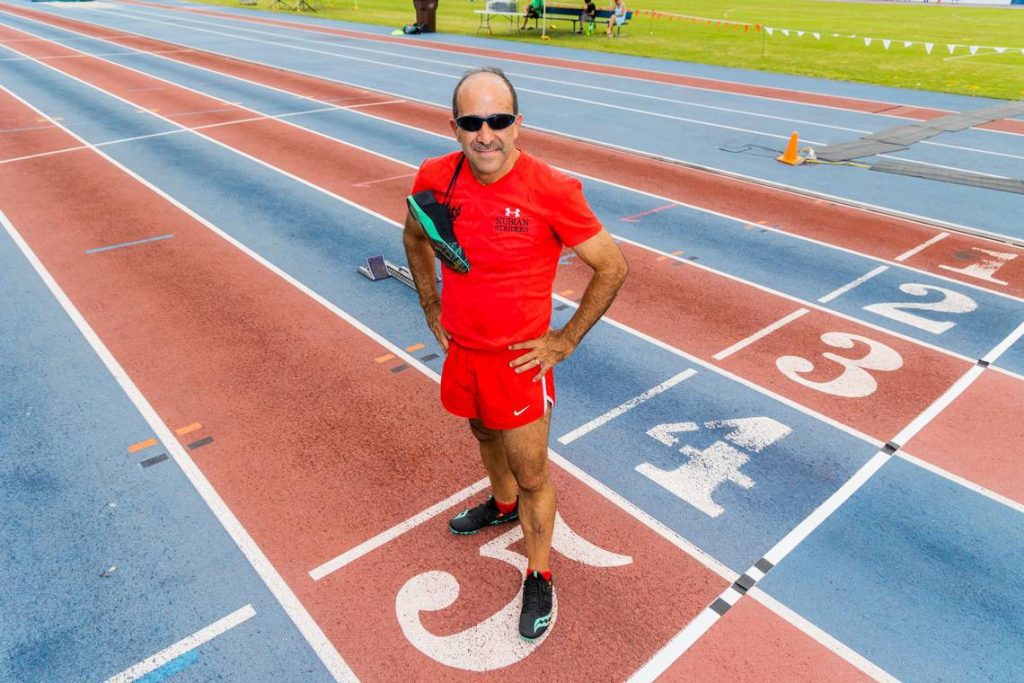
The games officially began Tuesday, May 10, but will launch fully on Thursday, May 12. They will end Monday, May 23. The events are in multiple venues across Broward County but are primarily at the Broward County Convention Center. The triathlon, which involves biking, swimming and running, will be held in Miami-Dade, at Crandon Park in Key Biscayne.
It’s only the second time the national Senior Olympics have been in Florida: Orlando hosted it in 1999.
To take part, participants had to first qualify in local and state contests.
Competitors vie with others in their age groups; the five-year age brackets start at ages 50-54 and go as high as 95-and-older.
The oldest competitor at this year’s national event is Lindsay Tice, a 103-year-old golfer from Winston-Salem, North Carolina. The oldest Floridian is Stanley Corwin, a 97-year-old bowler from Boynton Beach.
As for Fabra, this will be his third time participating in the Senior Olympics at the national level. He ran in 2013, in Cleveland, Ohio; and in 2019, in Albuquerque, New Mexico.
This week, he’s in the 400-meter, 200-meter, and 100-meter sprints. Those races will be held from Thursday, May 12, to Monday, May 16.
“I feel strong when I run,” Fabra remarks. “I feel alive. I feel young.”
‘SUPPORT AND GENUINE CARING’
The National Senior Games, as they are properly called, were inaugurated in 1987 in St. Louis, Missouri, by a group of people who wanted to promote healthy lifestyles for older folks. The nonprofit National Senior Games Association has held the games nearly every two years since.
The event will likely attract a near-record 12,000 competitors, including more than 150 in South Florida, this year. About 15,000 spectators are also expected. These games come after a COVID-19 pandemic gap year: They were originally set for November 2021.
Del Moon, director of communications and media for the event, thinks there are so many participants this year because the pandemic, with its extensive restrictions, led to so many people having heaps of pent-up energy and emotional need.
Moon also observed that when parks and gyms closed because of COVID-19, many older people stayed active regardless — maybe throwing a ball against their garage door, for example, or going on walks, even by themselves. But they still craved the sort of connection and camaraderie that the Senior Olympics provides.
One great thing about these games is that they’re held in a sociable, supportive atmosphere, Moon said.
“It’s not like high school or college or pro where everything is on the line and all I want to do is get my money or my scholarship or whatever,” he said. “These are people who are happy to see other people their age doing the same.”
“I’ve seen competitors literally stop and help a person up who’s falling in the middle of their race,” Moon said. “And frequently the last person to cross gets at least as much applause as the person who won the race.
“There’s that level of support and genuine caring for each other.”
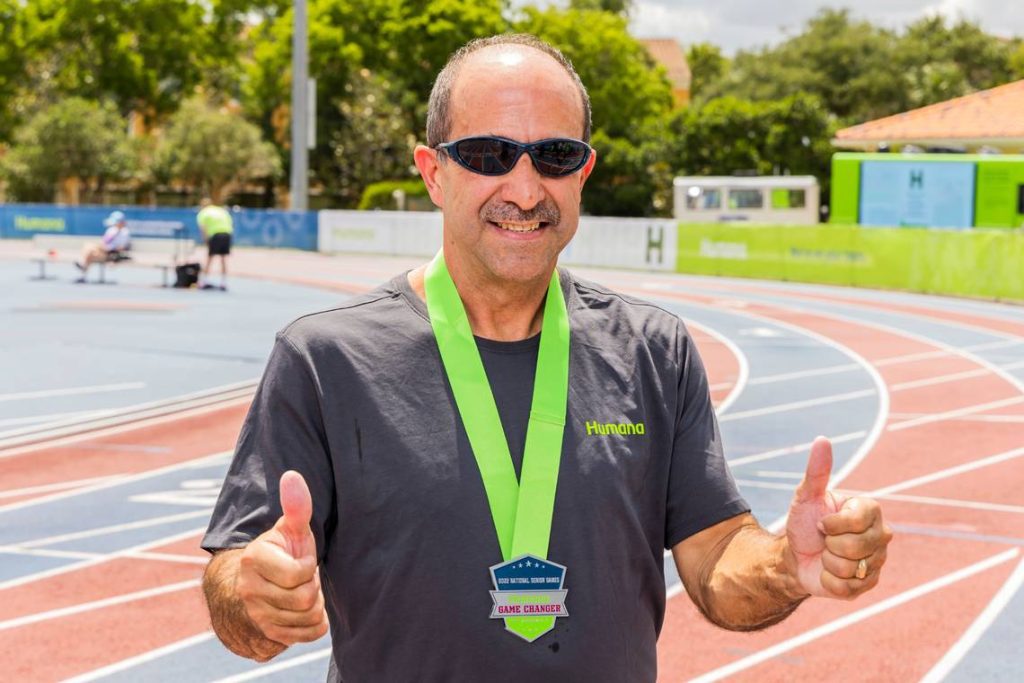
‘IT’S NOT OVER UNTIL YOU DIE’
Two large categories of seniors participate in the Senior Olympics, Moon said: people who have always exercised, like many military veterans, and people who have encountered a traumatic circumstance, such as the loss of a spouse, that sparks a change in habits.
Fabra, who had a near-death experience, falls into the latter category.
After his ordeal, he started eating smaller portions of the rice and beans he has adored since his childhood in Cuba. He began playing baseball on weekends. And after days spent teaching math to 12th-graders at South Dade Senior High School, just north of Homestead, he would go for runs — resuming a sport he had enjoyed as a youth but had abandoned in adulthood.
It worked.
“I feel like I started living again. It was a second chance,” Fabra said.
“Sometimes people think that their life is over when they get older. But it’s not. It’s not over until you die.”
At times, his students laugh when Fabra — who is more than three times their age — tells them that he runs competitively. But he uses those lighter moments not only to teach calculus and trigonometry concepts, but also lessons about why physical fitness is important throughout your life, not just when you’re school-age.
That messaging encouraged Humana, the health insurance company and presenting sponsor of the senior games since 2007, to select Fabra from the many thousands of competitors this year as one of Humana’s 12 “game changers,” a designation given to people who exemplify healthy aging. It’s a recognition that comes with a medal and merchandise.
“These athletes are inspirational to all seniors,” said Mark Mathis, Humana’s director of corporate communications.
“You don’t have to be an athlete — not everyone is going to be a senior games athlete — but everyone can take the first step towards being more active and healthier.”



